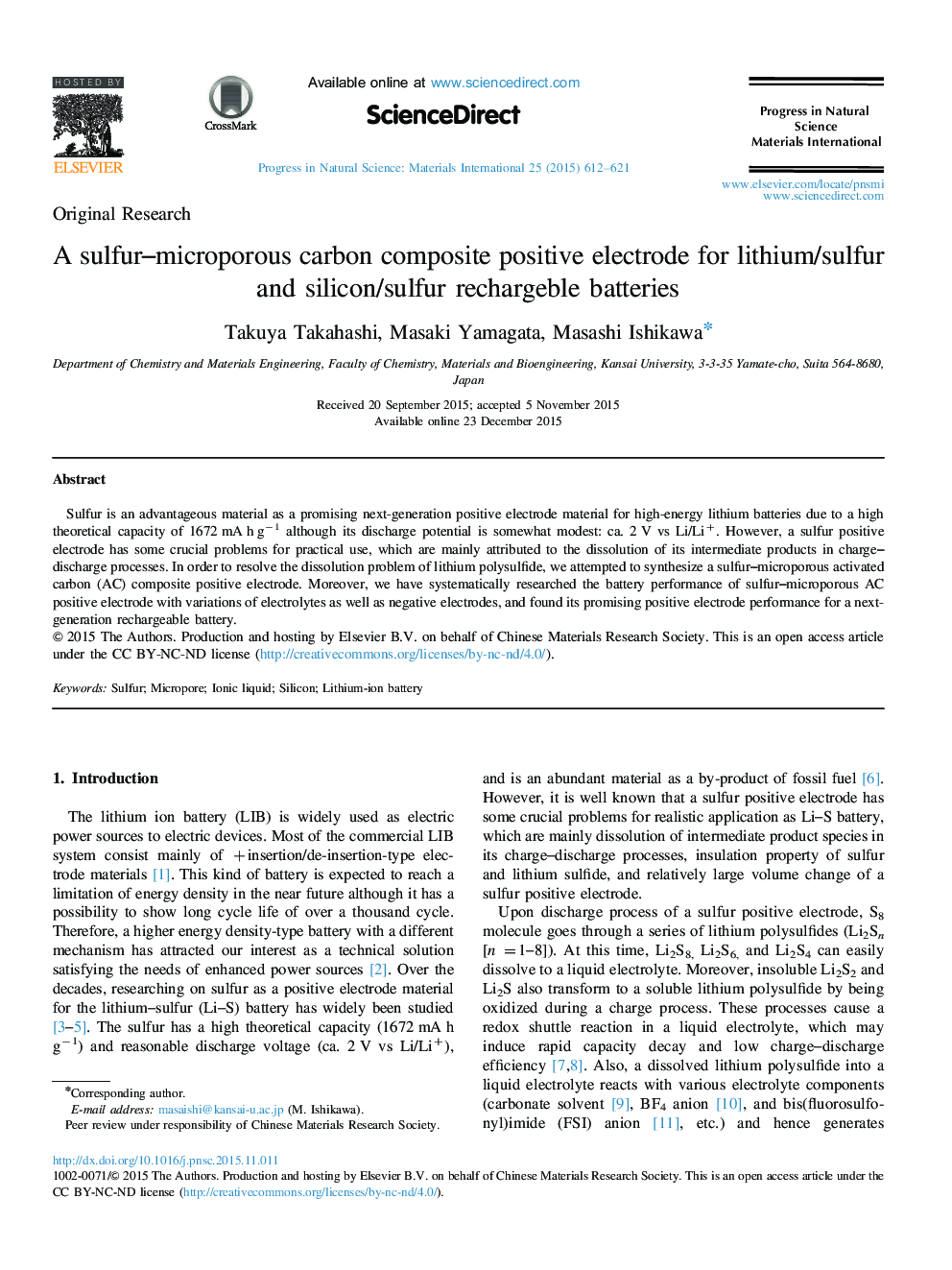| Article ID | Journal | Published Year | Pages | File Type |
|---|---|---|---|---|
| 1548260 | Progress in Natural Science: Materials International | 2015 | 10 Pages |
Sulfur is an advantageous material as a promising next-generation positive electrode material for high-energy lithium batteries due to a high theoretical capacity of 1672 mA h g−1 although its discharge potential is somewhat modest: ca. 2 V vs Li/Li+. However, a sulfur positive electrode has some crucial problems for practical use, which are mainly attributed to the dissolution of its intermediate products in charge–discharge processes. In order to resolve the dissolution problem of lithium polysulfide, we attempted to synthesize a sulfur–microporous activated carbon (AC) composite positive electrode. Moreover, we have systematically researched the battery performance of sulfur–microporous AC positive electrode with variations of electrolytes as well as negative electrodes, and found its promising positive electrode performance for a next-generation rechargeable battery.
